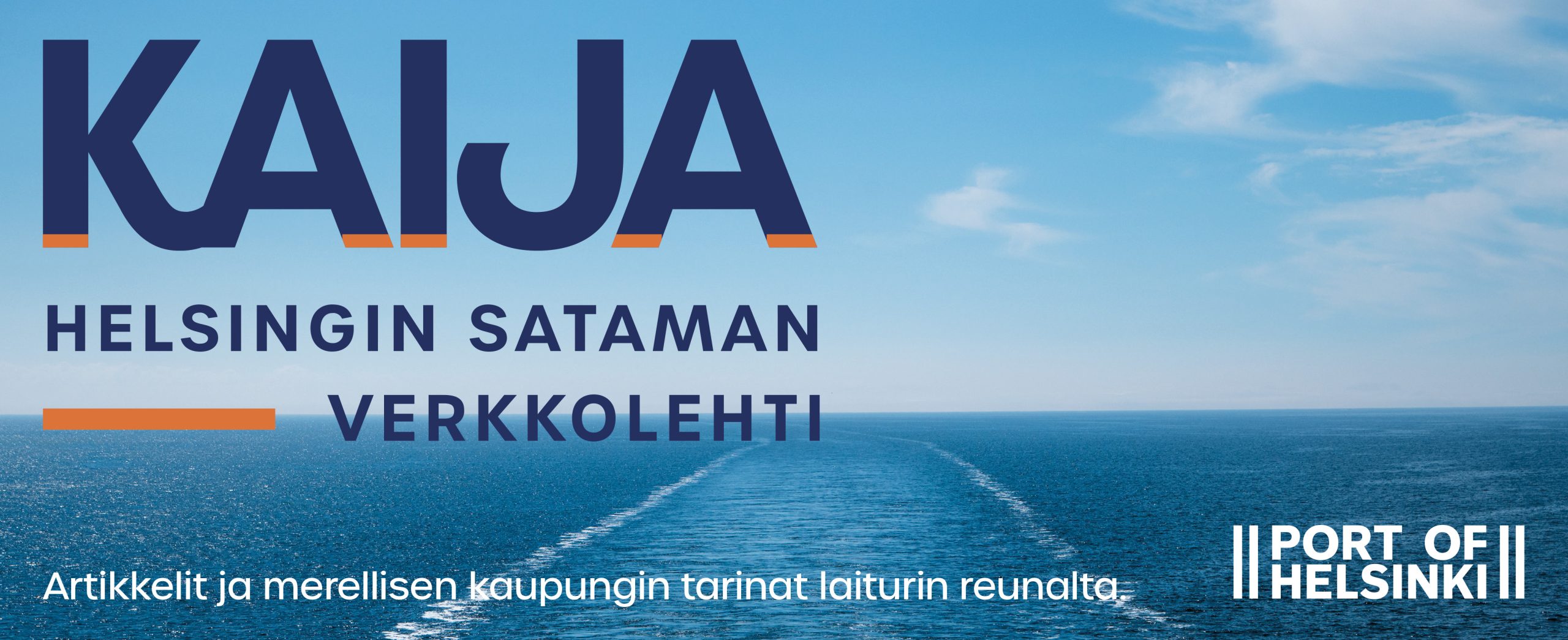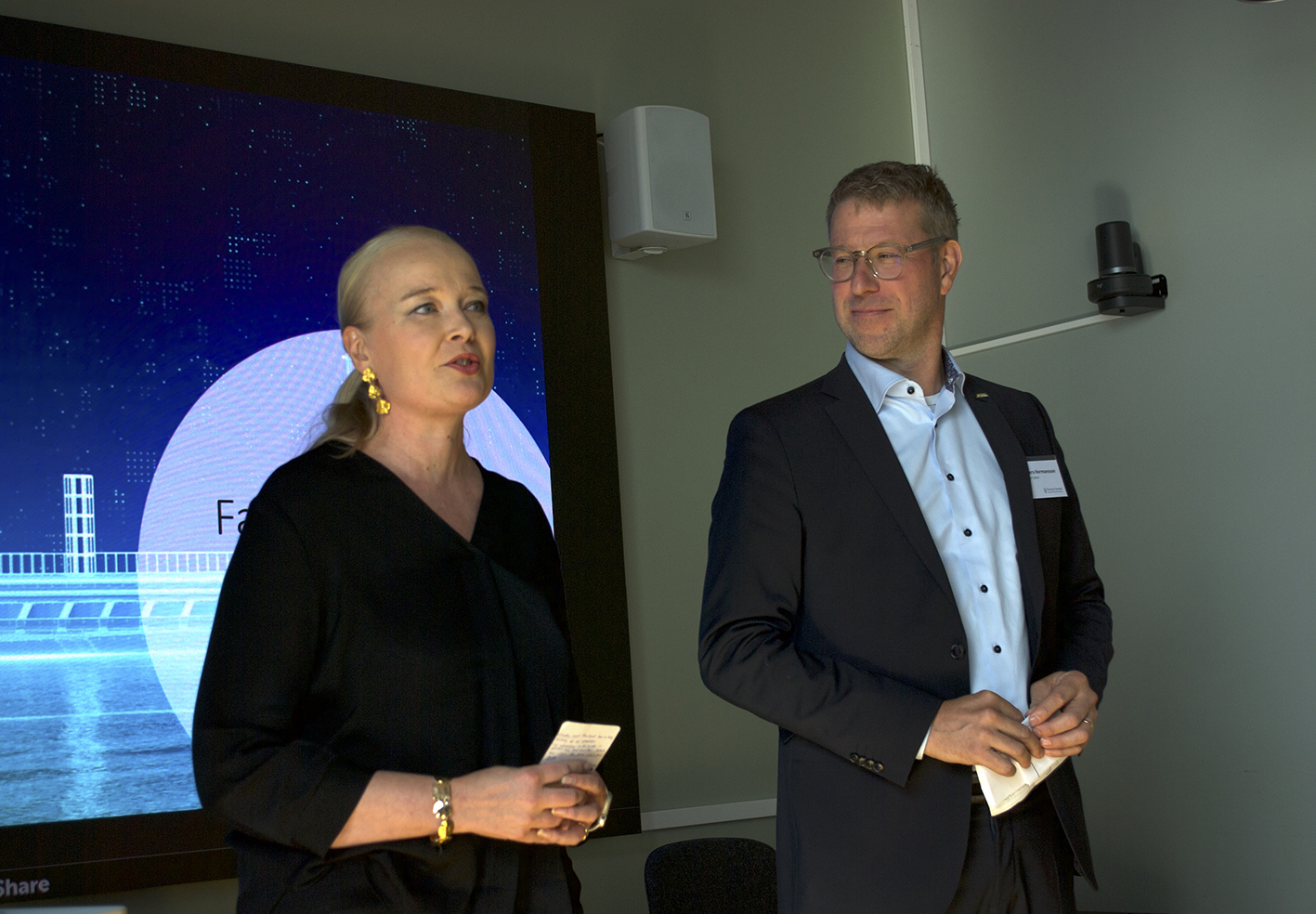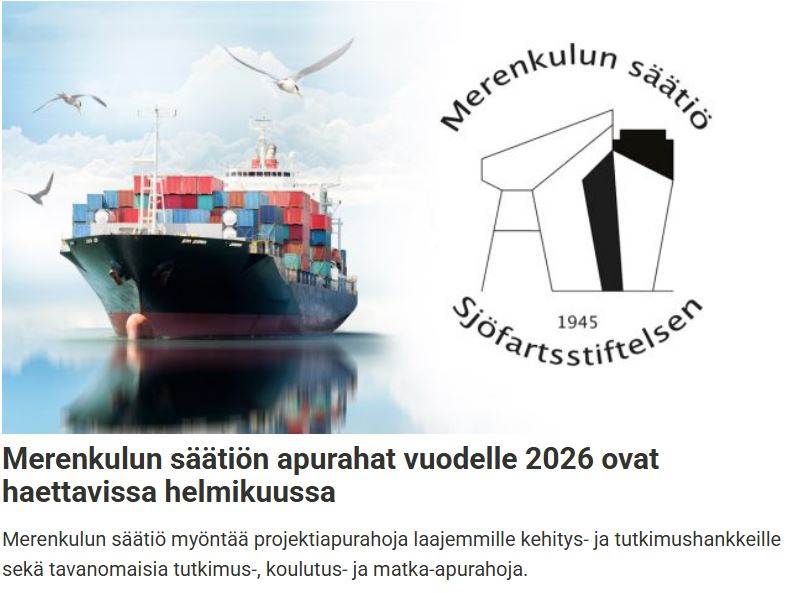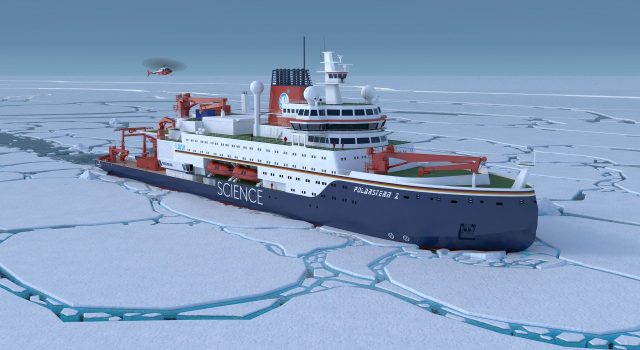Cooperation between the Finnish and Swedish shipping companies must be increased when companies are looking for solutions to reduce emissions. The spirit of cooperation between the two countries was strengthened on Thursday at the annual Fairway Forward event in Helsinki’s Vuosaari.
– Ahead of us is the biggest breakthrough in shipping since the invention of sails, Tiina Tuurnala, CEO of Finnish Shipowner´s Association, sums up the need for cooperation between the two countries.

The frank presentation of Finnlines’ chief operating officer, Thomas Doepel, conveyed a clear message to the audience: There is a heavy price to pay for the environmental revolution, but no company can afford to be a bystander.
Finnlines has decreased it´s fleet’s CO2 emissions by a third in ten years.
– This requires a lot of money, but the results will come. That is my message to you today, Doepel assured.
The company is currently renewing and increasing its fleet. Finnlines will receive three new ro-ro vessels this year. In addition, the order includes two ropax vessels for traffic between Finland and Sweden. Ship investments require financiers to believe in the company’s competitiveness. In financial discussions, the skills of the CFO alone are no longer enough.
– Environmental issues are the main topic of conversation when we talk with financiers. Now, in addition to the CFO, completely new professionals are needed for the discussions, said Doepel.
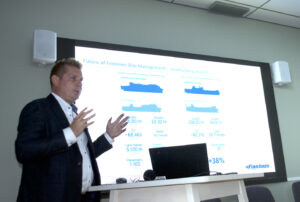
According to Doepel, companies’ environmental actions have a direct connection to the bottom lines of the income statement.
– The most profitable business is possible in companies that take environmental issues seriously and are the best in the field in solving them, assured Doepel.
Business growth is still driven by economies of scale, but in the future, efficiency will not be about individual ships or engine efficiency, but about the predictive operation of the entire fleet with data-based decision-making.
”It requires companies to critically examine their own expertise. Are the right people doing the right things in the right places. At the same time as we are discussing options for engine and fuel technology, we also need to see the solutions to environmental issues more broadly from the perspective of digitalization,” Doepel reminded.
Questions and answers
At the heart of the discussions at the event were new fuels. The wide spectrum of alternatives causes headaches when the industry is looking for a winning solution towards the shipping companies’ global goal of achieving carbon neutrality by 2050.
Electric cells, electric maritime transport and also electric fuels are solutions for sustainability that are still under development. Electric propulsion is already available today on short routes and in the vicinity of ports. But on long routes, liquid fuels will be the solution for a long time without a significant leap forward, for example in the storage of electrical energy to a smaller and lighter space.
In the short term, transitional solutions are becoming available that do not require large retrofitting or vessel investments from shipping companies. Like air and car transport, the share of biofuels in maritime transport is starting to increase with mixtures of fossil and bio-raw materials. Finnish fuelcompany Neste is aiming for this market.
The challenge in biofuels is still the chicken-and-egg arrangement of supply and demand. Does fuel production scale according to the increase in demand, or the other way around?

Hydrogen is progressing to experiments
The production of clean hydrogen in the Bothnia region could be one of billion-dollar opportunities of Finland-Sweden cooperation. This is also emphasized by the Finnish hydrogen production startup P2X Solutions.
– We have to create a vision in cooperation that Finland and Sweden together are a big player on a European scale. When we talk about a 100 billion market, it’s starting to build up interest, says Herkko Plit, CEO of P2X Solutions.
The company offers synthetic methane as a solution for maritime transport emission reductions.
– Our production plant in Harjavalta will start producing synthetic fuels in 2024. Discussions with maritime customers have progressed well. I believe that we will deliver the first batches of synthetic methane in two years.
In Sweden, hydrogen is being planned as a solution for ferry traffic between mainland Sweden and Gotland. Gotlandsbolaget is currently designing a vessel that uses only hydrogen as its fuel. The ship is scheduled to be put into traffic by 2030.
– The easiest way to reduce emissions would be to lower driving speeds, but that would reduce the quality of our service. Our solution is based on a gas turbine, which is a proven technology and also enables different fuel options. We believe that the gas turbine is also the first engine technology that can be run entirely on hydrogen, says Håkan Johansson, CEO of Gotlandsbolaget.

Johansson reminded that the large-scale production and utilization of clean hydrogen requires a large amount of clean electrical energy for the sea areas of Finland and Sweden.
Russia’s war aggression in Ukraine, the uncertain economic development of the next few years, the fight against global inflation and rising financing costs cause more uncertainties.
The unstable world situation makes it even more difficult to solve a complex equation: How to emphasize critical issues such as the production and availability of new fuels, the operation of the fuel distribution network, the costs of investments in propulsion technology or the storage of energy on the ship at the expense of cargo space.
When questions about numerous fuel options, electric propulsion and usability of fuel cells are added to the equation, finding a winning path requires an open exchange of information between companies and the sharing of best practices.
Text and photos Matti Keränen
Fairway Forward
Fairway Forward was founded in 2019.
The goal is to increase the exchange of information between companies in the shipping industry in Finland and Sweden and share the best practices for solving environmental issues.
The seminars are organized every other year in Sweden and Finland.
Fairway Forward was organized in Vuosaari on September 1, 2022.
